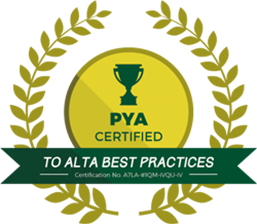
You’ve heard the advice, buy a home instead of rent. But why is this so important? The answer is – home equity (HE). Purchasing a home builds home equity, while renting does not. This is significant because home equity can help you build wealth and manage your debt. Let’s understand it, then learn how to use it.
Home equity explained…
Simply put, home equity is the estimated value of your home, less the amount of debt you owe on it. For example, if your home is worth $200,000 and you owe $80,000, your equity in the home is $120,000. This is considered an asset and included in net worth calculations.
There are two ways home equity can increase – by paying down debt (through mortgage payments), and an increase in the home’s value. When paying down debt you are decreasing the amount you owe on the property, thus increasing the portion you own “free and clear.” Likewise, as the value of the home increases (even if the debt amount remains the same), the portion owned “free and clear” also increases.
Why is this important?
As already mentioned, home equity is an asset and contributes to net worth, thus increasing wealth. While not a liquid asset, meaning it cannot be converted to cash in short term, it can be used as a tool to borrow against. There are a number of loan products that use home equity as collateral to secure the loan.
A home equity loan is a lump sum loan with a fixed rate and time period within which to pay off completely, much like a mortgage.
A home equity line of credit (HELOC) is similar, however this functions like a credit card. HELOC’s have an approved credit limit and borrowers do not have to draw from available funds immediately. There is a minimum monthly payment based on outstanding HELOC balance, and borrowers can advance and pay down over time. The interest rate for HELOC’s is usually adjustable.
A cash-out refinance is a third option. Cash-out refi’s use the equity you possess in your home to secure a new mortgage that is more than the current one. The difference in the current mortgage being paid off and the cash from the new mortgage can be used at the borrower’s discretion.
Advantages to borrowing with home equity.
Loans with home equity as collateral tend to have a lower interest rate. Therefore, it can be a financially wise decision to refinance or consolidate various other forms of debt, such as credit cards and car loans, using one of the home equity options above. Many choose to finance home improvements like new kitchens, additions, and other major remodeling. Also, the funds received from the various loans secured by home equity will not be taxed, as they are not income.
Once understood, home equity can provide you with economical options to help you reach your financial goals. Ready to close on your next home equity loan, HELOC or cash-out refi? Give us a call at Champion Title! We can walk you through every step of the way. For more information please call us at (703) 444-4100 or visit our website at www.championtitle.com.










